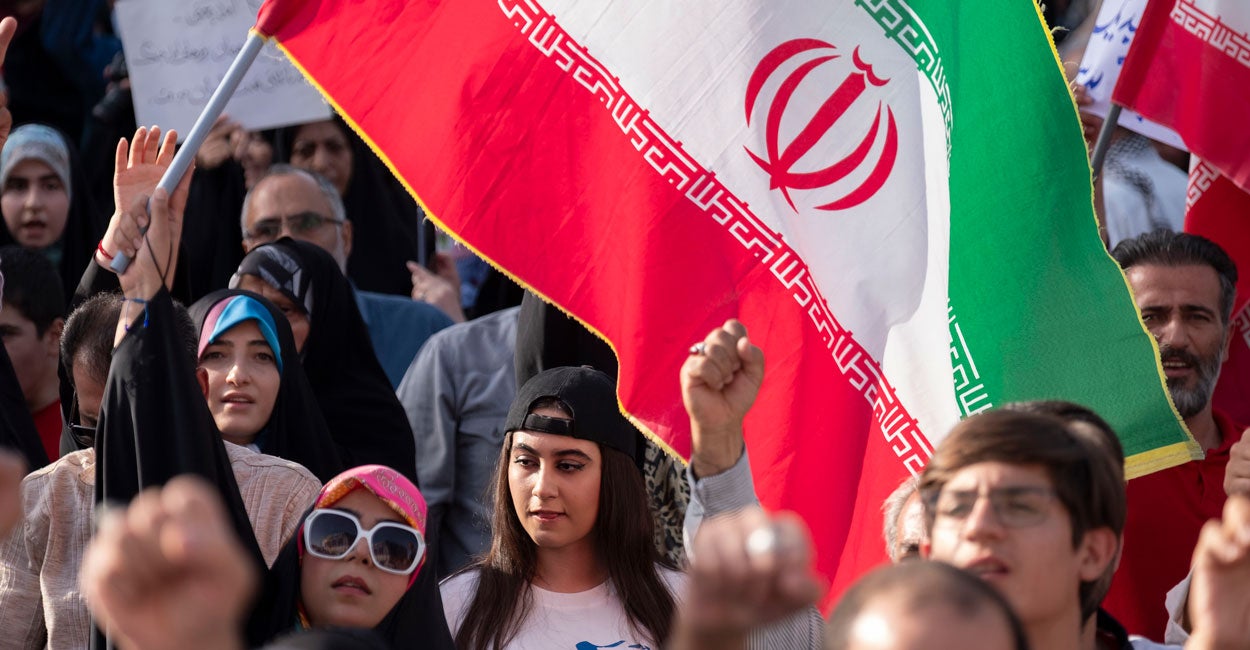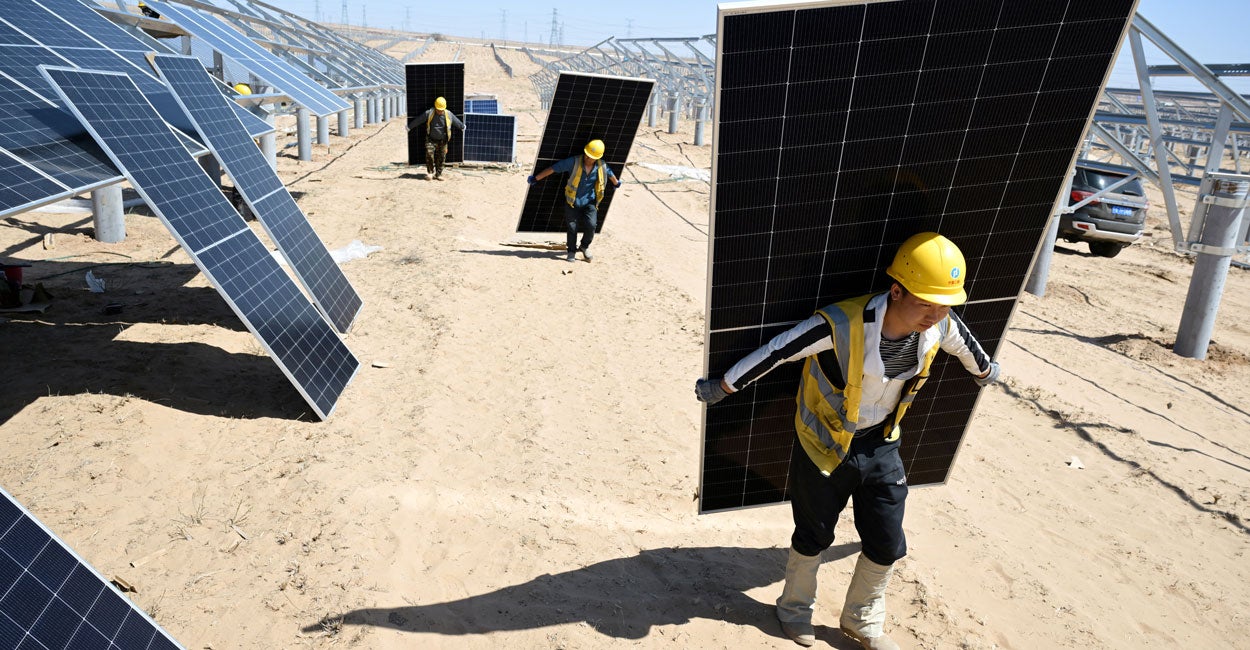Iran Has Only One Negotiating Chip Left: Its Survival

Editor’s note: This is a lightly edited transcript of today’s video from Daily Signal Senior Contributor Victor Davis Hanson. Subscribe to our YouTube channel to see more of his videos.
Hello, this is Victor Davis Hanson for The Daily Signal. On June 22, this past Saturday night, President Donald Trump ordered B-2 bombers—these are the multibillion-dollar bombers based in Missouri—and seven of them apparently flew almost 15 hours one way, 6,000 miles. And each of them perhaps was equipped with two of these terrible bunker-busters, 30,000 pounds. Fourteen of them were dropped on the Fordow nuclear site. And cruise missiles from submarines then hit the other two as well.
And the question is, what happens now?
We have to get some context. Usually, when an American president does anything in the Middle East, it doesn’t work out well for a variety of reasons.
Jimmy Carter’s presidency was destroyed by his failed 1980 April rescue attempt. Joe Biden was about 50% approval until the disastrous flight from Kabul, Afghanistan. George W. Bush, when Saddam Hussein’s statue fell in spring 2003, had about a 55% approval rating. But after the insurgency and the surge and the insurgency, he left office with historic low polls.
I don’t think Barack Obama even recovered from that misadventure in 2011, where he—under the influence of Samantha Power, Susan Rice, Ben Rhodes, and Hillary Clinton—bombed Libya. And that went off and on for five years.
So, it doesn’t have a good pedigree.
And what follows from any air campaign is not necessarily good. We took out Slobodan Milosevic mostly by air, that tended to work, there was something better. I think that we took out Libya, something worse followed. There was chaos. We took all out Saddam—maybe after years and years of turmoil and blood, maybe something’s better in Iraq.
But the point is, when you take out a leader or you bomb, it’s not easy for the people on the receiving end to sympathize with you or to rise up against the dictator.
So, what’s going to happen? Well, we gotta remember that what Trump did was not 1991, first desert war, where it’s a preliminary to a ground invasion. It was not 2003, preliminary to a ground invasion. It was not 2011, bombing Libya for regime change. There was a specific task. And that was to take out what remained of the nuclear acquisition program in Iran. And apparently, it did that in spectacular fashion.
So, what is going to be the reaction to all of this? Everybody says, “Well, there’ll be—” I don’t see the people rising up, a Green Revolution redux. But what might happen is that the military should be feeling very uneasy.
The top 20 or 25 officers were taken out by Israel. They know there’s a list. The subordinate officers, the next tier, must know their name is on it. They must know that people are angry. That over 50 years, nearly, they spent a trillion dollars subsidizing the Houthis, Hezbollah, Hamas, the Assad dynasty. And for what? It’s all up in smoke. And then they probably lost another trillion dollars, over 50 years, through sanctions and oil embargoes. For what? It’s up in smoke.
And so, people in the military must know that the public will be pointing their fingers at them, as well as the theocracy. They must know that any association with the theocracy got their superiors killed. And it’ll be interesting to see what the military’s attitude is if they were further humiliated.
Will Russia and China do anything? I doubt it. I’ll talk about that in a subsequent episode.
So, where are we right now? Right now the ball is in the court of Iran. Trump has said to them, “You can come back and negotiate.” But what would they negotiate over? Their one card was, “We have the specter of a nuclear bomb. So, you better come to us and talk.” They don’t have that anymore, at least not for the foreseeable future. The only negotiable item is whether they survive or not. And I don’t think they’re going to want to negotiate that. And so, what are they going to do?
It’s probably going to descend into something like the Houthis, Red Sea, western Israel, tit for tat, tit for tat, until finally they get exhausted.
Finally, what is the stature of Israel and Trump in the aftermath? Well, Israel has done the unbelievable. If we had this conversation on Oct. 8, 2023, we would’ve said the very idea that they’re going to take on the formidable Hezbollah legions, that they’re going to destroy Hamas, that they’re going to neutralize some of the Houthis, that they’re going to cause the Assad dynasty to flee, that Russia’s going to be out of the Middle East, that Iran is going to be defenseless—no one would have believed it.
Their only problem, Israel’s, will be overconfidence. After the Six-Day War, the Yom Kippur surprise happened. After their success, since then, we had Oct. 7 to the day 50 years later. I don’t think they’re going to get overconfident anymore.
As far as the United States, they have restored the deterrence that was lost by Joe Biden in a variety of ways but most spectacularly, in Afghanistan. So, it’s a very tense situation. No one can predict what’s going to follow. But for right now, things are much better, now after Saturday night, than they were before.
We publish a variety of perspectives. Nothing written here is to be construed as representing the views of The Daily Signal.
The post Iran Has Only One Negotiating Chip Left: Its Survival appeared first on The Daily Signal.
Originally Published at Daily Wire, Daily Signal, or The Blaze
What's Your Reaction?
 Like
0
Like
0
 Dislike
0
Dislike
0
 Love
0
Love
0
 Funny
0
Funny
0
 Angry
0
Angry
0
 Sad
0
Sad
0
 Wow
0
Wow
0












































































